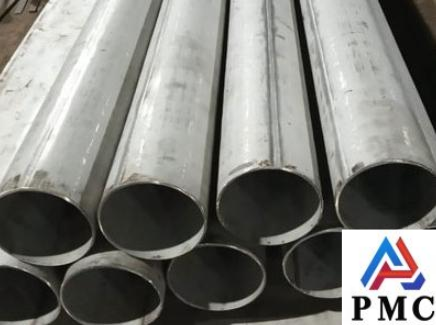
What is the SCH 80 Casing Pipe?
What is the casing pipe?
A casing pipe is a tubular structure used to line and protect the walls of a borehole or well. It is primarily used in drilling operations, such as in the oil, gas, and water industries. The casing pipe prevents the collapse of the surrounding formation, blocks unwanted substances (like water or gas) from entering the well, and facilitates the controlled extraction of oil, gas, or water from underground reservoirs. Unlike oil pipes and drill pipes, it cannot be reused and is a one-time consumable material. Therefore, the consumption of casing accounts for more than 70% of all oil well pipes.
What is SCH 80?
A pipe schedule refers to the wall thickness of a steel pipe. This schedule is indicated by a number that represents a standardized wall thickness, not the actual thickness itself. These standard wall thicknesses are established by the American National Standards Institute (ANSI) and are based on a formula that takes into account the nominal size of the pipe and its pressure rating. A schedule 80 pipe has a thickness of around 1/4 inch. As the schedule number increases, so does the wall thickness, making the pipe suitable for higher pressure applications. Although schedule 80 pipe is stronger and more durable, it is also more expensive due to its thicker walls, which require additional material and manufacturing time.

The SCH 80 casing pipe
SCH 80 casing pipe refers to a specific type of pipe made according to Schedule 80 specifications. The "Schedule" (SCH) indicates the wall thickness of the pipe, with higher schedules representing thicker walls. SCH 80 is a heavy-duty pipe used in industries where high pressure and durability are required.
Features of SCH 80 Casing Pipe:
Thicker Wall: Compared to Schedule 40, SCH 80 pipes have thicker walls, making them ideal for high-pressure applications.
Material: Common materials include PVC, steel, and stainless steel.
Size Range: Available in a range of diameters, depending on the application. The internal diameter is typically smaller due to the thicker walls.
Benefits of SCH 80 Casing Pipes in Applications
1. High Strength and Durability: The thick walls provide additional mechanical strength, allowing the pipe to withstand significant internal and external pressures.
2. Corrosion Resistance: Depending on the material (such as PVC or stainless steel), 3. SCH 80 pipes offer strong resistance to corrosion from chemicals, water, or soil.
Temperature Tolerance: SCH 80 pipes can tolerate higher temperatures, making them suitable for extreme environments.
Key Applications of SCH 80 Casing Pipes
1. Oil and Gas Industry:
Well Casing: SCH 80 casing pipes are used to line the walls of oil and gas wells. They stabilize the borehole, prevent the collapse of the well, and protect against external geological pressures.
High-Pressure Pipelines: These pipes are commonly used in upstream, midstream, and downstream sectors where the transported oil or gas is under high pressure.
Deep Wells: For deeper oil or gas wells, thicker-walled SCH 80 pipes provide the necessary strength to withstand extreme underground pressures.
2. Water Well Drilling:
Borehole Protection: In water wells, SCH 80 casing pipes protect the wellbore from collapse and help to isolate different water zones.
Geothermal Wells: Often used in geothermal applications where temperatures and pressures are elevated, SCH 80 casing can handle these extremes effectively.
3. Construction Industry
Structural Support: SCH 80 casing pipes are sometimes used in construction for applications requiring high strength, such as foundation piling or large infrastructure projects that demand pressure-resistant pipes.
Bored Piles: Used in pile foundations to protect the surrounding soil from collapsing and to provide a stable column for concrete filling.
Read more: What is a Steel Casing Pipe Used for?


